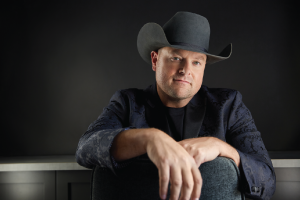Efficacy Study Summary of Mental Emotional Release® Therapy
Efficacy Study of Mental Emotional Release® Therapy (aka Time Empowerment®) for Depressive Disorders
By Patrick Ross Scott, PhD, LCSW, DCSW, FAPA
Dr. Patrick Scott is an AIP Board Certified Master Practitioner who assists clients at the Heads Up Guidance & Wellness Centers of Nevada. Dr. Scott presented his findings at 2 conferences: the 24th Annual American Psychiatric and Mental Health Congress held in Las Vegas, Nevada November, 2011 and the 1st Annual University of Phoenix Research Symposium held in Las Vegas, Nevada February 2012. This is a very simplified version of Dr. Scott’s actual study.
As part of his doctoral dissertation, Dr. Patrick Scott completed a study to “investigate the relative effectiveness of Mental Emotional Release® (MER) Therapy as an adjunct treatment to Cognitive Behavioral Therapy (CBT) in the treatment of depressive disorders and adjustment disorders with a depressive component”. The study was a post-chart review that included 922 electronic health records and occurred over a two-year period, between October 1, 2008 and September 30, 2010. The expected outcome was that participants who received MER, would have shorter lengths of stay than those receiving CBT. “Although depressive symptoms were reduced in significantly fewer sessions, this sample of those receiving MER actually had longer lengths of stay than their CBT counterparts. It is anticipated that a future study may reveal the longer length of stay had more to do with rapport and the client’s enjoyment of the process.” It was also discovered that clients who received MER, had remission of depressive symptoms within five sessions, and in a certain number of clients, the symptoms did not return.
The control group had 832 participants who received CBT, with a breakdown of Female 63%, Caucasian 36%, and unemployed 83%. The experimental group had 99 participants who received MER in addition to CBT, with a breakdown of Female 60%, Caucasian 80%, and unemployed 37%. The majority of participants in both groups were adults between the ages of 26 to 40 and were all treated in Las Vegas or a suburb of Las Vegas.
Prior to treatments, all participants were asked to complete various consent and written agreement forms. Two screenings were performed. The first screening was with “the Behavioral Health Screening to collect demographic criteria, insurance information, and financial status and to also administer the PHQ-9 scale to evaluate depression”. The second screening was an “intake assessment conducted by a licensed intern to further understand the client’s presenting problems, psychiatric, medical, family, social and substance abuse history and DSM IV diagnoses. Following these procedures participants were later assigned to the CBT group conducted by intern therapists or the MER group as directed by Dr. Patrick Scott. Data was collected during a twelve-week period in the Fall of 2010 by research assistants from universities and analyzed for inclusion in the study”.
In the collection of the data, the following categories were evaluated: duration of treatment, number of sessions, progression of diagnosis, discharge diagnosis and treatment recommendations.
Key Findings
Fewer sessions required: A control group of 823 patients who received CBT only was compared to an experimental group of 99 patients who also received MER. Participants receiving MER had a 37% shorter period to remission of depressive symptoms that those who did not.
More engaged in treatment.
No documented recidivism: While we cannot be sure of their condition post treatment, there were no documented cases of relapse, recidivism or re-hospitalization after their MER experience.
Conclusions
We are learning that a multi-disciplinary and collaborative approach to mental health is the most effective. This study represents a small step in adding to the repertoire of holistic approaches and tools utilizing a conscious mind/unconscious mind partnership.




